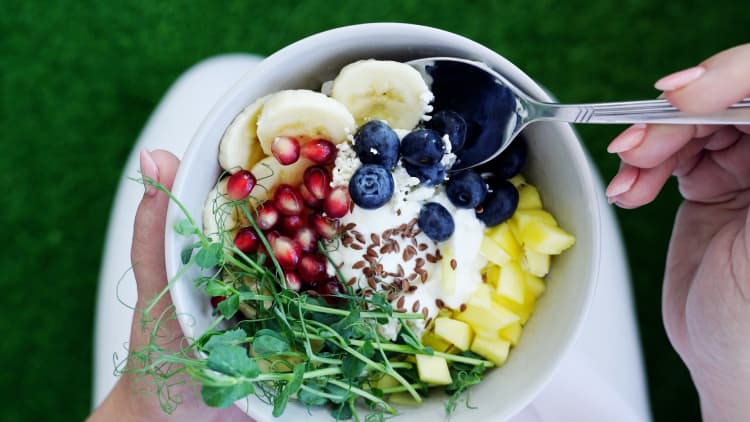In a little-known mountainous area called Hunza Valley, located in the far north of Pakistan, people seem to defy all medical predictions.
It is primarily home to the Burusho and Wakhi people, who for centuries have survived and thrived in remote villages, with minimal services and rudimentary healthcare facilities. Studies have found that the average life expectancy here is around 100 years.
My husband was born and raised here and comes from the Burusho indigenous community. After we got married, I left the United States and we settled in the central part of the valley.
Here are some intriguing habits that help the people of Hunza live longer:
1. They consume apricot seeds and oil
The apricot is one of the most important local crops in the valley. Studies have shown that apricot seeds may help fight cancer and other sources of inflammation in the body, in part thanks to a compound called amygdalin.
Most Hunza residents own at least one apricot tree and each summer the seeds are harvested from inside the apricots.
Photo: Samantha Shea
Almost every traditional Hunzai dish includes apricot oil. It used to be made by hand, but now locals use machines to extract it from the harvested beans.
My mother-in-law told me that 50 years ago it was all people cooked food with, even meat. Dried versions of the fruit also help with altitude sickness and are boiled into a soup during the winter.
My father-in-law arranges dried apricots on the roof
Photo: Samantha Shea
2. They never stop moving
People here are healthy and active throughout their lives, well into old age. It’s very common to see people in their 80s outdoors, even in winter. Elderly family members still herd cows and sheep, collect wood and do other household chores.
They also participate in community activities such as “rajaki”, which involves cleaning the raised water channels when spring arrives.
Locals of all ages cycle, skate and play sports such as football and cricket every day.
3. They drink glacier water
Hunza is filled with dozens of glaciers, all of which melt during the summer.
A shiny, dark gray liquid, “Hunza water” has long piqued the interest of scientists. Unlike other water sources, this glacial water is naturally filtered through layers of ice and rock and contains valuable minerals.
A view of the Passu glacier from Patundas, a meadow in Upper Hunza where locals bring their cattle every summer
Photo: Samantha Shea
What Hunza glacier water looks like straight from the source
Photo: Samantha Shea
The runoff generally lasts from May to October each year, when you’ll find it served in restaurants and homes. Locals swear by it and prefer it to filtered water.
4. They rarely eat processed foods
Almost every piece of meat consumed in Hunza comes from a locally sourced animal that has recently been killed.
People rarely eat processed foods and you definitely won’t find any fast food here. Meals are generally prepared fresh at home every day, and almost every family grows some type of vegetable.
Spinach is especially popular, and other favorites, such as tomatoes and potatoes, are grown locally and organically.
5. They have strong community values
The neighborhoods and villages are very close-knit and the people of Hunza care for each other, especially the older members of the community.
Retirement homes don’t exist here. The elderly are highly respected and cared for by their families.
Me and two strong elderly women from Chapursan valley which is one of the most remote parts of Hunza located along the Wakhan corridor
Photo: Samantha Shea
With essentially zero crime, it is quite safe for children to be out and about alone, even at a young age. It’s probably one of the last places you’ll see more outdoor games than iPad games.
Having lived here for the past two years, I can happily say that I have never had the privilege of experiencing a collective society like this.
Samantha Shea is a Polish-American travel writer from Connecticut. He lives and works remotely in the Hunza Valley, Pakistan, and runs women’s tours to the region. Follow her Instagram AND Youtube.
Do you want to get your dream job in 2024? Take CNBC’s new online course How to best pass your job interview to find out what hiring managers are really looking for, body language techniques, what to say and not say, and the best way to talk about compensation.
